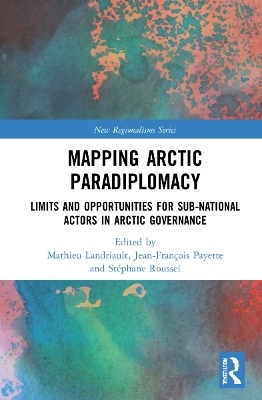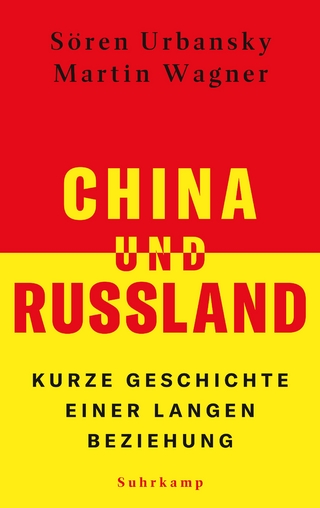
Mapping Arctic Paradiplomacy
Routledge (Verlag)
978-0-367-67423-6 (ISBN)
Sub-national actors, such as civil society groups and sub-national governments or administrations, have been active in international relations for decades. They face specific political and economic limitations on the international scene as non-sovereign entities. This book investigates how these actors have developed their international presence in the Arctic region. It analyzes the diplomatic activities of states, provinces, regional administrations, and multilateral forums made of sub-national governments to offer comparative insights on the strategies, interests, and activities of sub-national governments. Alaska, Scotland, Quebec, Yakutsk, and Indigenous People’s organizations are among the examples covered in this book that have forged bilateral and multilateral relations to promote and defend their interests and values. Moreover, sovereign states are often using these sub-national actors to further their own interests, as exemplified in this book in how Russia and China harnessed the potential of sub-national governments to align with their Arctic policies.
The volume will be useful to academics and graduate students of Arctic politics, international relations, comparative politics, comparative federalism, foreign policy, and global governance.
Mathieu Landriault teaches political science at the University of Ottawa and conflict studies at Saint Paul University. Jean-François Payette holds a doctorate in political science from the Université de Lyon and teaches international management at the ESG of the Université du Québec à Montréal (UQAM). Stéphane Roussel is a full professor at the École nationale d’administration publique (Montréal, Québec).
Introduction Chapter 1 – Nordicity and Québec’s Arctic Paradiplomacy Chapter 2 – North American Arctic Paradiplomacy: Between multilateral and bilateral inclinations Chapter 3 – Canada-Russia Subnational Cooperation in the Arctic Chapter 4 – Arctic Paradiplomacy of the Republic of Sakha (Yakutia): The impact of federalism, nationalism, and identity Chapter 5 – Small Enough to Act, Big Enough to Matter: Subnational Arctic climate change actors Chapter 6 – Arctic Cross-Border Cooperation: The opportunities and limits of subnational cooperation in the Barents Region Chapter 7 – The Arctic Paradiplomacy of Indigenous Peoples’ Organizations Chapter 8 – Indigenous Diplomats at the IMO: A case study in successful cross-scale governance for international shipping traffic in the Bering Strait Chapter 9 – Between the "Arc of Prosperity" and the Arctic: Challenges and opportunities of Nordic Scotland’s paradiplomacy Chapter 10 – Silk on Ice or When China Plays the Paradiplomatic Card in the Arctic Conclusion – Limitations and Opportunities in Arctic Paradiplomacy
| Erscheinungsdatum | 02.08.2021 |
|---|---|
| Reihe/Serie | New Regionalisms Series |
| Zusatzinfo | 7 Tables, black and white; 5 Line drawings, black and white; 3 Halftones, black and white; 8 Illustrations, black and white |
| Verlagsort | London |
| Sprache | englisch |
| Maße | 156 x 234 mm |
| Gewicht | 462 g |
| Themenwelt | Sozialwissenschaften ► Politik / Verwaltung ► Europäische / Internationale Politik |
| ISBN-10 | 0-367-67423-8 / 0367674238 |
| ISBN-13 | 978-0-367-67423-6 / 9780367674236 |
| Zustand | Neuware |
| Informationen gemäß Produktsicherheitsverordnung (GPSR) | |
| Haben Sie eine Frage zum Produkt? |
aus dem Bereich


